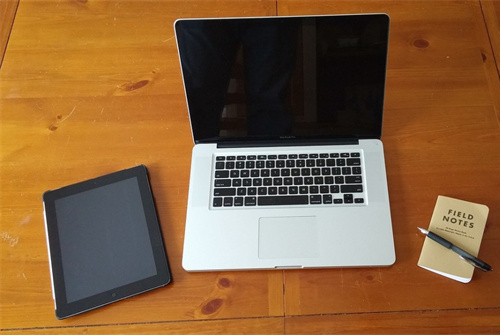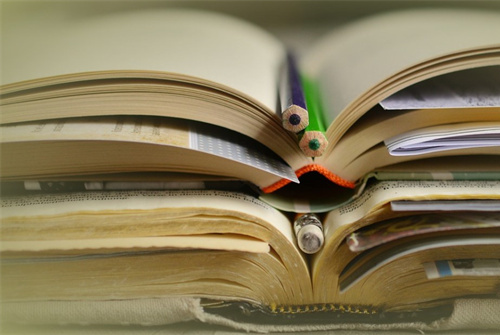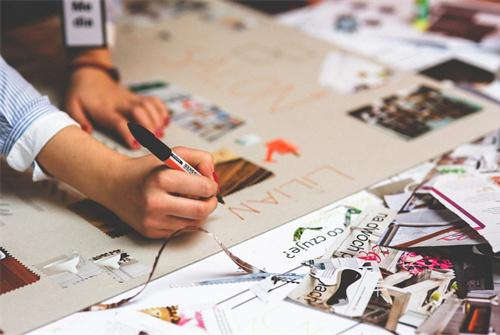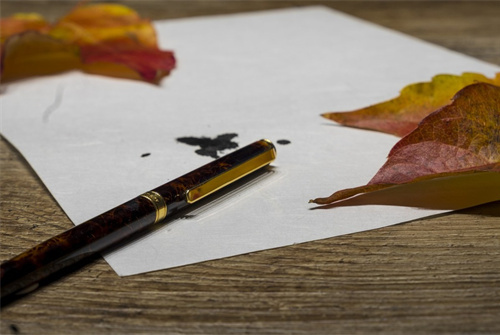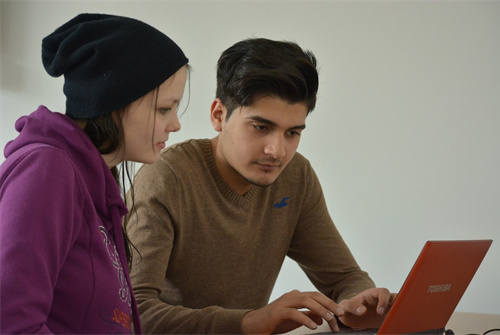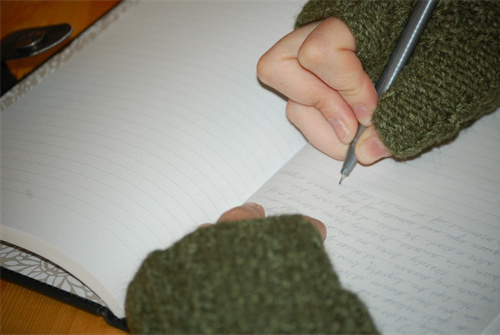两个六年级的英词句子加中文

【第1句】:小学六年级水平英语句子 带翻译
小学英语四会句子汇总小学英语四会句子汇总 【第1句】: This is my computer. 这是我的电脑。
【第2句】: That is your computer. 那是你的电脑。 【第3句】: Is this a teacher's desk? Yes, it is. 那是讲桌吗?是的,它是。
【第4句】: What time is it? 现在几点了? 【第5句】: It's two o'clock. 现在两点。 【第6句】: It's 9:【第45句】: 现在九点四十五。
【第7句】: It's time for math class. 现在该上数学课了。 【第8句】: Is this your T-shirt? No, it's not. 这是你的T恤吗?不,它不是。
【第9句】: What colour is it? It's white. 它是什么颜色的?它是白色的。 【第10句】: It's warm today. 今天很暖和。
【第11句】: Let's play football. 让我们来踢足球。 【第12句】: It's cool. 天气凉爽。
【第13句】: Is it cold?天气冷吗? 【第14句】: How much is it? It's ten yuan. 它多少钱?十元。 【第15句】: How much are they? They're three yuan. 它们多少钱?三元。
【第16句】: Are they ducks? No, they aren't. 它们是鸭子吗?不,他们不是。 【第17句】: How many horses are there? Twelve. 有多少匹马?十二匹。
【第18句】: Who's your English teacher? Mr Carter. 谁是你的英语老师?卡特先生。 【第19句】: What's he like? He's tall and strong. 他长什么样?他又高有强壮。
【第20句】: Is she quite? No, she isn't. She's very active. 她文静吗?不,她非常活跃。 【第21句】: Is she strict? Yes, she is, but she's very kind. 她严格吗?是的,但是她非常和蔼。
【第22句】: What day is it today? It's Wednesday. 今天星期几?星期三。 【第23句】: What do you have on Thursday? 你们星期四有什么课? 【第24句】: We have English, math and science on Thursdays. 我们星期四有英语,数学和科学课。
【第25句】: What do you do on Saturdays? I watch TV on Saturdays. 你周六都做什么?我周六看电视。 【第26句】: What do you have for lunch on Mondays? 你星期一午餐吃什么? 【第27句】: We have tomatoes, tofu and fish. 我们吃西红柿,豆腐和鱼。
【第28句】: What's your favourite fruit? I like apples. They're sweet. 你最喜欢的水果是什么?我喜欢苹果。它们是甜的。
【第29句】: I like fruit. But I don't like grapes. They're sour. 我喜欢水果。但我不喜欢葡萄。
它们是酸的。 【第30句】: What can you do? I can sweep the floor. 你会做什么?我会扫地。
【第31句】: I can cook the meals. 我会做饭。 【第32句】: I can water the flowers. 我会浇花。
【第33句】: Can you make the bed? No, I can't. 你会铺床吗?不,我不会。 【第34句】: Can you use a computer? Yes, I can. 你会用电脑吗?是的,我会。
【第35句】: There are two bedrooms, a kitchen, a bathroom and a living room. 有两个卧室,一个厨房,一个卫生间和一个客厅。 【第36句】: There is a mirror, a bed and a big closet. 有一面镜子,一张床和一个大衣橱。
【第37句】: The closet is near the table. 衣橱在桌子旁边。 【第38句】: Many clothes are in the closet. 许多衣服在衣橱里。
【第39句】: Is there a forest in the park? Yes, there is. 公园里有森林吗?是的,有。 【第40句】: Is there a river? No, there isn't. 有小河吗?不,没有。
【第41句】: When do you eat dinner? I eat dinner at 7:00 in the evening. 你什么时候吃晚餐?我晚上七点吃晚餐。 【第42句】: When do you get up? I usually get up at 12:00 at noon.你什么时候起床?我通常中午12点起床。
【第43句】: What do you do on the weekend? Usually I watch TV and go shopping. 你周末做什么?我经常看电视,去购物。 【第44句】: Sometimes I visit my grandparents. 有时候我看望外祖父母。
【第45句】: What about you? 你呢? 【第46句】: I often play football. 我经常踢足球。 【第47句】: Sometimes I go hiking. 有时候我去远足。
【第48句】: Are you eating lunch? No, we aren't. 你们正在吃午餐吗?是的,我们正在吃 。 【第49句】: Are they eating the honey? Yes, they are. 它们正在吃蜂蜜吗?是的,它们正在吃。
【第50句】: Is he playing chess? Yes, he is. 他正在下棋吗?是的,他在。 【第51句】: Is she counting insects? No, she isn't. 她正在数昆虫吗?不,她不在。
【第52句】: How do you go to school, Sarah? 你怎样去上学,萨拉? 【第53句】: Usually I go to school on foot. Sometimes I go by bike 我通常走路去上学。有时候我骑车去。
【第54句】: How can I get to Zhongshan Park? 我怎样才能到达中山公园? 【第55句】: You can go by the No.15 bus. 你可以坐15路公交车去。 【第56句】: Where is the cinema, please? 请问,电影院在哪里? 【第57句】: It's next to the hospital. 它在医院旁边。
【第58句】: Turn left at the cinema, then go straight. It's on the left.在电影院左转,然后直走。它在左边。
【第59句】: What are you going to do on the weekend? 你周末打算做什么? 【第60句】: I'm going to visit my grandparents this weekend. 这个周末我打算去看望外祖父母。 【第61句】: Where are you going this afternoon? I'm going to the bookstore.今天下午你打算去哪里?我打算去书店。
【第62句】: What are you going to buy? I am going to buy a comic book. 你打算去买什么?我打算去买一本漫画书。 【第63句】: .What's your hobby? I like collecting stamps. 你的爱好是什么?我喜欢集邮。
【第64句】: He likes collecting stamps, too. 他也喜欢集邮。 【第65句】: Does she teach English? No, she doesn't. 她教英语吗?不,她没有教。
【第66句】: Does she teach you math? Yes, she does. 她教你数学吗?是的,她教。 【第67句】: What does your mother do? She is a TV。
【第2句】:写十句六年级一般现在时的英语句子并翻译
答案如下:
【第1句】:We have six classes every day. 我们每天上六节课抄。
【第2句】: I often get up at 6:【第30句】: 我经常6:30起床。
【第3句】: Jack likes Chinese food very much. 杰克很2113喜欢中国5261饮食。
【第4句】: We can see some pictures on the wall. 我们能看到墙上的画。
【第5句】: I don't want so much.
【第6句】: Ann Wang writes good English but does not speak well.
【第7句】: Now I put the sugar in the cup.
【第8句】: The earth moves around the sun.
【第9句】: Shanghai lies in the east of China.We usually go to school at 7:【第30句】: My parents give ten yuan to my sister every week.
【第10句】: Lucy is at home now. 露茜现在4102在家。
参考材1653料:20个一般现在时的英语句子
【第3句】:小学六年级的英语句子
【第1句】:---What grade are you in ? ---I'm in the sixth / first / second grade. 【第2句】:---Why were you late yesterday?---Because my watch stopped. 【第3句】:We're in the same grade. 【第4句】:Here comes the bus. 【第5句】:Let's get on the bus. 【第6句】:I'm not late today. 【第7句】:---Where did you live in Canada? 【第8句】:I lived in Ottawa. 【第9句】:Isn't Ottawa in the west / east?------No,it's in the east. 【第10句】: ---What's your favorite subject?---My favorite subject is P.E. 【第11句】:I'm not good at calculating. 【第12句】:Which do you like better, the purple one or the gray one? 【第13句】:I like the gray one better.【第7句】:This shirt is too small for me. 【第14句】:---Do you have a bigger one?---Sure! This is the biggest one. 【第15句】:That shirt looks good on you.【第16句】:Let's go into the shop. 【第16句】: Can I try this shirt on ? -----Of course. 【第17句】: ---How can I get to the amusement park? ---Go down this street and turn right / left. It'll be on your left / right. 【第18句】:You should be more careful.【第19句】:We can cross the street. 【第19句】:---What should we do now?---We should park our bikes. 【第10句】:---How tall are you?---I'm 150cm tall. 【第11句】:I'm taller than you are. 【第12句】:I'm the tallest. 【第11句】:I want to ride the roller coaster.---I'm tall enough. 【第12句】: ---Shall we go to the safari park? ---Yes, I'm interested in jungle life 【第13句】:I want to take pictures of them. 【第14句】:Can I borrow your camera? 【第15句】:---I can't find my brother.---We've got to call the police. 【第16句】:Please take all your coins out. 【第17句】:I'm afraid of tigers. 【第18句】:Qiaoqiao is missing. 【第19句】:Let's ask her for help. 【第19句】:---What does he / your son look like? --- He has small brown eyes. 【第20句】:What's he wearing? -----He's wearing a green shirt and glasses. 【第22句】:---Is he / Qiaoqiao as tall as you?---No, he's shorter than I am. 【第23句】:A boy is coming out of the restroom. 【第24句】:Oh,that's my son! 【第25句】:When did you lose your son? 【第26句】:About half an hour ago. We collected some eggs on the farm.【第2句】:I was at the camp last week.【第3句】:We often go shopping together.【第4句】:David usually plays football at school.【第5句】:They collect some eggs on the farm.【第6句】:Mum watered trees and flowers last week.【第7句】:My mother cooked nice food at home.【第8句】:Last Tuesday I pulled up carrots.【第9句】:Wang Bing picked a lot of apples and tasted them.【第10句】:He had a birthday party yesterday.【第11句】:My friends gave me a model plane as a birthday presents.【第12句】:We had a Maths lesson this morning.【第13句】:Danny went to the park with his friends.。
【第4句】:【第5句】:6年级必背英语句子(含中文意思)
【第1句】: 你的名字叫什么?张红。
What's your name ? My name is Zhanghong.
【第2句】: 你几岁了?我十岁了。
How old are you ? I am ten years old .
【第3句】: 你家在哪里?在石河子。
Where is your house? /Where do you live? It's in the city of shihezi. /I live in the city of shihezi.
【第4句】: 这个用英语怎么说?书。
What's this in English ? It's a bbok .
【第5句】: 早上好!/下午好!/晚上好!
Good morning! /Good afternoon1/Good evening!
【第6句】: 你好吗?我很好!你呢?我也很好?
How are you ? I am fine. And you? /How about you? I am fine,too.
【第7句】:你最喜欢的音乐/运动/食物是什么?是流行音乐/乒乓球/饺子。
What's your favorite music/sports/food? It's popular music/pingpong ball/ dumplings.
【第8句】:你的爸爸是做什么工作的?他是一名医生。
What is your father ?/What does your father do?/ What's your father's job? He's a doctor.
【第9句】: 你喜欢英语/唱歌/跳舞吗?是的,我非常喜欢。/不,我不喜欢。
Do you like singing /dancing? Yes, Iike it very much. /No, I don't.
【第10句】:你在哪个年级/班?我在六年级/一班。
What grade/class are you in? I am in Grade6/Class【第1句】:
【第11句】:你的好朋友是谁呀?他/她是。
Who is your good friend ? He/She is。
【第12句】:你长大了想干什么呀?我想成为一名歌唱家。
What do you want to be when you grow up ? I want to ne a singer.
【第5句】:小学生1
收集物品 :stickers football picture postcards comics autographs stamps 星期:Monday Tuesday Wednesday Thursday Friday Saturday Sunday 学习物品:blackboard schoolbag eraser book chair pen pencil pencil case ruler desk tree window 身 体 部首 :eyes nose ears arms mouth face hair hands legs feet toes teeth 衣 服 :T ‐ shirt jeans cap dress socks sweater shoes trainers shirt skirt shorts tie blazer trousers blouse cardigan 运动:play football play the piano stand on your hand play football swim roller blade ski ride a horse 动 物 :elephant crocodile mice rabbit lion dog pig wolf duck budgie fox snake hippo cow sheep hamster 月 份 :January February March April May June July August September October November December 食物:apple bananas beef chicken drink dumplings fish food noodles pork porridge rice steamed bread 表 情:angry cry feel sad scared smile stupid tired happy 颜色:black blue colour green orange pink purple red white yellow brown grey 生活物品:floor clock lamp sofa light mirror wardrobe chair window table curtains door picture 形状:triangle circle rectangle square 句子【第1句】:---What are you doing on Sunday?--- I' m going to watch TV.She is going to sing.He is going to play football.Thay are going to dance.【第2句】:I have got a pencil.Have you got a pet?What is it?What colour is it?【第3句】:I often dream of my friends.I sometimes dream of being a football star I never dream that I can fly.【第4句】:I get up at seven.I go to school at eight.I have 4 classes in the morning.I have lunch at school at twelve.I have sports at four.I go home at five.I do homework from six to seven.I go to bed at nine.【第5句】:Tom collects comics and stamps. He doesn ' t collect postcards and stickers.【第5句】:There is/are *** in/on/behind/under/in front of the ***.【第6句】:---How much is it?---It ' s five yuan.---How much are they?---They are twenty yuan.【第7句】:He is wearing a red sweater,a blue blazer,a red skirt and black shoes【第8句】:---Can you swim?---Y es,I can./No,I cann ' t.Jim can play football and ski. He can ' t swim and play the piano.9---.what time is it?---It ' s half past ten.It ' s five to five.It ' s ten past two.It ' s quarter past three.【第10句】:My best friend ' s name is Tom He ' s ten years old.His favourite colour is black.His favourite food is noodles His birthday is in may.He has got a dog.Who ' s your best friend?How old is she?When is her birthday?What ' s her favourite food?What ' s your name?---How are you?--- I' m fine.What ' s your favourite colour?What ' s your favourite food?What ' s your favourite day?What ' s your favourite number?What ' s your phone number?【第11句】:Has it got two legs?Does it eat grass?Does it eat other animal?Does it live on a farm?Is it green?Can it fly?Is it a sheep?【第12句】:How many chairs are there?How many pens have you got?【第13句】:---what ' s he doing?---He is playing football.He is swimming.14---.how are you feeling today?--- I' m tired/sad/happy/angry.【第15句】:---where is my book?---On the table.祝学习进步。
【第6句】:六年级的英语同义句及汉语
【第1句】:look , see (看,看见) look 指提醒别人,引起注意的“看” eg. (例) Look ! She's here ! 看!她在这儿! see 指强调“看”的结果 eg . (例) You can see a dog under the bed . 你可以看见床底下有一只狗。
【第2句】:across , through (穿过) across 指从表面穿过 eg. (例) go across the bridge . 走过那座桥。 through 指从内部通过。
eg. (例) The path led through the trees to the river . 这条小路穿过树林通向河边。 【第3句】:say , speak (说) say 指说、讲,重复指说话的内容,经常带宾语,做及物动词。
eg . (例) He said that he was busy . 他说他很忙。 Speak 说话、演讲,着重强调说的动作,不注重说的内容,一般做不及物动词。
做及物动词时的宾语只能是语言或truth (真理、事实) eg . (例) Do you speak Chinese ? 你说汉语吗? The baby is learning to speak . 这孩子在学习讲话。 【第4句】:borrow , lend (借) borrow 从主语角度讲是“借来,借进”,常为“borrow sth . From sb .”。
eg .(例) She borrowed some books from your sister . 她从你姐姐那里借来了一些书。 lend 从主语的角度讲是“借出”,常为“lend sth . to sb .”或“lend sb . sth .” eg .(例) He lent me a pen . 他把钢笔借给我。
【第5句】:correct , right (正确的) correct “正确的,恰当的”,有纠正的含义,较正式,可做动词。 eg .(例) He is correct in saying so . 他那样说是对的。
The student can't correct the mistake . 这个学生不能纠正这个错误。 right 强调正确性,不可以用做动词,另有“右边”之意,习惯中常用表达“正确的”。
eg .(例) You 're right . 你是对的。 My bag is on the right . 我的包在右侧。
【第7句】:finish , end (结束) finish 指做完某事或完成某一动作。有使某件工作更臻完美之意。
后常接动名词或名词。 eg .(例) They finished supper at eight o'clock . 他们八点吃完晚饭。
end侧重事物结束,不现继续或延续,多指旅行、演讲、争论、战争等结束终止。 eg . (例) The World WarⅡended in 1945 . 第二次世界大战1945年结束。
【第8句】:glad , happy (快乐的) glad “高兴的,乐意的”,主观上高兴。 eg . (例) I'm very glad to see you . 我很高兴见到你。
happpy “高兴的,幸运的”, 从某种意义上说有客观条件致使的高兴、幸运之意。 eg . (例) Happy New Year ! 新年快乐! 【第9句】:tall ,high (高的) tall 指身高、树高、建筑物高、动物的身高等细长物的高度,高而不宽。
eg . (例) a tall man . 一个高个子男人 a tall tree 一棵大树 hiht 一般用来形容山脉以及不与地面接触的人或物,又高又宽。 eg . (例) What's the highest mountain in the USA ? 美国哪座山最高? 【第10句】:news ,message (消息) news 强调新闻性的消息、报道。
eg . (例) Your teacher is in the news . 你的老师在新闻中被报道。 message . 常指口信、书面留条、电文、通信等。
eg . (例) I have a message for you from Lily . 我这儿有莉莉给你的口信。 【第11句】:question , problem (问题) question 意思较广,一般指需要解答或回答的问题,即指提出的问题。
eg . (例) There is no question about his honesty . 他的诚实是毫无疑问的。 problem 指存在的需要解决的问题或物理、数学中的难题。
eg . (例) Ican't solve this math problem . 我解不出这道数学题。 【第12句】:sick , ill (病的) sick 指生病,在英国比较通用。
可做表语、定语。 eg . (例) ① He has been sick for two weeks . 他已经病了两周了。
② the sick man . 病人 ill 指生病时,主要用于美国。只做表语,一般不做定语。
【第13句】:photo , picture (照片) photo 照片,尤指摄影照片。 eg . (例) He is taking a photo . 他正地拍照。
picture “图画,画,照片”,用途最方。 eg . (例) What's that in Picture One ? 第一幅图里的那是什么 ? 【第14句】:answer , reply (回答) answer 用法较普通,指书画或口头答复。
eg . (例) I called , but no one answered . 我叫了,但没人回答。reply较正式的,是经过考虑后的答复。
eg . (例) They asked the government to reply as soon as possible . 他们要求政府尽快答复。 【第15句】:big , large (大的) big较口语化,指事物面积和体积的大小,还可表示物体的重量、人的身高等。
eg . (例) The box is too biog to carry . 盒子太大拿不动。 large指巨大,在表示数量时用,而不用。
eg . (例) He has a large number of books . 他有大量的书。 【第16句】:close , shut (关闭) close关闭门、窗等。
eg . (例) Close the door . 关门。 shut“关闭,合拢,关上”等,尤指关电源,闭嘴,闭店等。
eg . (例) Shut your mouth . 闭嘴。 【第17句】:desk , table (桌子) desk指课桌。
eg . (例) My besk is orange . 我的书桌是橘色的。 table指桌子,餐桌。
eg . (例) The boy is eating at the table . 那个男孩正在桌边吃饭。 【第18句】:door , gate (门) door指室内的门。
eg . (例) There is a door in the wall . 墙里有扇门。 gate指户外的大门。
eg . (例) There is a dog at the gate . 大门口有条狗。 【第19句】:evening , night (晚上) evening傍晚(常指晚五点到晚九点之间) eg . (例) We。
【第7句】:六年级英语翻译句子、
六年级的话,应该应该已经在讲时态了。
所以要注意
第一句:This morning I had(ate) an egg and some bread ,and I drunk a glass of milk.(注意逗号后的 and I 是一定要加的,否则句子就多谓语了)。
第二句:What are you going to do next Saturday? I am
going to play football with my friends.(这里最好用be going to do结构,别用will do)
第三句:Where were you just now? I was in the teachers'office.(这里用teacher's也可以,就要看有几个老师了)。
第四句:I went to beijing with my family last year.We enjoyed ourselves.(后句或用We had a happy time.)。
第五句:My mum gets up earlier than I every day.(这句有两个关键,一个是than后要用I,但口语中则可用me;另一个是every day要分开,只有分开来的能做状语,连起来的只做定语形容词)。
好了,祝你学习顺利,取得好成绩!
【第8句】:小学生六年级英语短文(中文加英文、越多越好、有意义的)急~
【第1句】:Yesterday was my birthday, so some of my classmates sent me presents. Mother prepared a tea party for me. I invited all of them to come and take part in it.The tea party began at half past six. There were cold drinks and refreshments. We ate, talked and laughed. We felt that we were the happiest men in the world 昨天是我生日,所以有几位我的同班同学送我礼。
母亲给我准备一个茶会。我邀请他们都前来参加。
茶会下午六点半开始。有冷饮和点心。
我们又吃又谈又笑。我们觉得是世界上最快乐的人。
【第2句】:I like the Chinese new year better than any other festival. This is a time especially for rest and joy. I need not study. I wear good clothes and eat good food. I have a good time from morning till night. I am as happy as a king. 我喜欢中国新年比喜欢其它任何节日更甚。
这是一个专为休息和欢乐的时间。我不需要读书。
我穿好衣服,吃好东西。我每天从早到晚日子过得轻松愉快。
我和上帝一样快乐。 【第3句】:No sooner had the witer vacation begun than I returned to my native town. Of course I must make good use of it;.In the morning I reviewed my lessons and read newspapers or magazines. In the afternoon I played ball games with my friends or went fishing in the river. At night I watched television with my family. hardly had the clock on the wall struck ten when I went to bed. 寒假刚一开始,我就回故乡了。
自然我须好好利用它。 早晨我复习功课并阅读报纸或杂志。
下午我和朋友打球,或去河中钓鱼。晚上我就和家人看看电视。
墙上的钟刚敲十下,我就去睡觉了。 【第4句】:I live very happily today! In the morning, it is very fine! Then I climb the mountain with family, the air on the mountain is very fresh, the flowers plants and trees on the mountain all seem extremely beautiful. Coming back home in the evening, family and I sat and watched TV together, we are returning and eating the fruit while chatting, the whole family is happy and harmonious! 今天我过得非常开心!早上,天气非常好!于是我和家人一起去登山,山上的空气非常清新,山上的花草树木都显得格外美丽。
晚上回到家,我与家人坐在一起看电视,我们还一边聊天一边吃着水果,全家其乐融融! my trip to japan (日本之旅) Japan was fun. It was very cool and windy. We flew kites in the park. I bought a watch there. I wanted to buy more, but I didn't have money. The gardens there were beautiful. I very liked the gardens . The japan department stores were too big. I couldn't find Mom. The food was delicious. We ate a lot of fish。 I also liked the vegetables and cake there. I hope I can go to Japan one more time. 日本是一个非常有趣的国家.在那里有凉爽的空气和很强的风。
我在那里的公园玩风筝。那里的花园很美丽。
我十分喜欢那花园。日本的百货商店很大间。
我找不到妈妈.食物是美味的。那里的食物很美味。
我们在吃了很多的鱼。我也爱吃那里的蛋糕和蔬菜。
我希望下次可以再到日本去。
【第9句】:英语作文六年级(加中文)
I like to have a healthy diet food. It is useful for me to eat healthy food. It offers me a lot of energy.We need to healthy food rather than junk food or fast food. Hamburgers and french fries are the common examples of junk food. Although they taste delicious, they don't have enough nutrients but they have the large amount of carbohydrate and fats. They will make your weight unbalanced. Bread, rice, or vegetables, are the common examples of the healthy food. They have a large amount of nutrients which provide you energy, and away from diseases. 答案补充我喜欢吃健康食物,吃健康食物对于我来说的十分有用的。
它能提供给我很多能量。我们需要健康食物而不是垃圾食物和快餐。
汉堡包和薯条就是垃圾食物的例子。尽管它们味道好,但汉堡包和薯条没有足够的营养,并含有大量的脂肪。
它将使你体重失衡。小麦,大米,蔬菜是常见的健康食品。
它们含有大量的营养,这些能提供给你能量,并使你原离疾病。
【第10句】:一到六年级最简单的英语单词
welcome。
int & vt 欢迎first。num 第一 lesson。
n 课;功课sir。n 先生;阁下term。
n 学期so。conj 因此;所以piece。
n 张(片,块,。)a piece of。
一张(片,块,。)paper。
n 纸;报纸call。vt 叫喊;打电话给。
may。v. aux. 可以matter。
vi 要紧;有重大关系time。n 次;次数next。
adj 下一个的next time。 下次second。
num 第二long。adj 长的short。
adj 短的;矮的tall。adj 高的pair。
n 一对;一双third。num 第三shop。
vi 买东西fourth。num 第四fifth。
num 第五moon。n 月亮sun。
n 太阳ship。n 轮船another。
adj & pron 再一(个)land。n 陆地;土地sea。
n 海;海洋usually。adv 通常by。
prep 乘(车,船等)walk。vi 走;散步foot。
n 脚on foot。 步行train。
n 火车page。n 页;页码fine。
adj 好的;天气晴朗的air。n 天空;空气clean。
adj 清洁的;干净的eighth。num 第八autumn。
n 秋天;秋季mid-autumn。 中秋ninth。
num 第九free。adj 空闲的;自由的night。
n 夜晚;夜空mooncake。n 月饼must。
v. aux 必须;应当come over。 过来;顺便来访parent。
n 父(母)亲第二组 50个parents。n 双亲;父母亲hungry。
adj 饥饿的a little。 一点;少量why。
adv 为什么round。adj 圆的;球形的than。
conj 比Mmm。int 嗯nut。
n 坚果;坚果仁delicious。adj 美味的;可口的full。
adj (肚子)饱的letter。n 信;字母September。
n 九月October。n 十月kind。
n 种类kinds of。 各种各样的at night。
在夜里in the open air。 在户外;在野外twelfth。
num 第十二out。adv 在外outside。
prep 在。外gate。
n 大门what about。 怎么样nothing。
pron & n 没有东西idea。n 主意;念头;想法Good idea。
好主意sure。adv 的确;一定good-bye。
int 再见;再会have a swim。 游泳hair。
n 头发month。n 月few。
adj 少数的a few。 一些;少数几个could。
v. aux. 可以。,行for。
prep 为;给better。adj & adv 更好的(地)best。
adj & adv 最好的(地)road。n 路;公路pick。
vt & vi 摘;挑选when。adv 什么时候;何时quite。
adv 很;十分put on。 穿上(衣服);戴上(帽)bell。
n 铃;钟hard。adv 努力地far。
adj & adv 远的(地)metre。n 米(公尺)kilometre。
n 千米(公里)get on。 上车truck。
卡车ladder。n 梯子climb。
vt & vi 爬;攀登hold。vt 拿;握住lift。
vi 举起;抬起more。adj 更多的most。
adj & adv 最多strong。adj 强壮的;坚强的careful。
adj 小心的;仔细的be careful。 当心;小心reach。
vt & vi 伸手够到dangerous。adj 危险的busy。
adj 繁忙的puzzle。n 难题;(字,画)谜shall。
v aux (我,我们)将要park。n 公园quarter。
n 一刻钟;四分之一past。prep (超)过;经过sinish。
vt 完成;结束then。adv 到那时first。
adv 最初;首先meal。n 一餐(顿)饭minute。
n 分钟no。adj 没有zoo。
n 动物园animal。n 动物panda。
n 熊猫tiger。n 虎elephant。
n 象live。vi 居住;生活dog。
n 狗monkey。n 猴子inside。
prep 在。的里面have a good time。
玩得很高兴boat。vi 划船boating。
n 划船(游玩)be good at。 在。
方面(学得)好chicken。n 鸡;鸡肉duck。
n 鸭(子)hear。vt & vi 听见;听说well。
int 喔;好吧all the time。 一直usually。
adv 通常popular。adj 流行的;受欢迎的find out。
找出;查明soccer。n 英式足球player。
n 比赛者;选手also。adv 也answer。
vt & n 回答question。n 问题front。
n 前面left。n & adj 左;左边(的)hand。
n 手side。n 边;面right。
n & adj 右;右边(的)back。n & adj 后面(的)next。
adv 贴近next to。 贴近;其次in front of。
在。前面touch..vt 触摸;接触word。
n 词;话语head。n 头;头部face。
n 脸;面孔ear。n 耳朵eye。
n 眼睛nose。n 鼻子arm。
n 手臂;胳膊leg。n 腿part。
n 部分body。n 身体draw。
vt 画;绘制from。to。
从。到。
keep。vt & vi 保持;留住mustn't。
不可以stop。vi 停止pass..vt 传递place。
n 地点;地方hospital。n 医院stop。
n 停车站bus stop。 公共汽车站post。
n 邮政;邮件office。n 办公室post office。
邮政局fruit。n 水果station。
n 车站;所;站police。n 警察;警务人员police station。
警察岗(站);派出所bookshop。n 书店all the same。
仍然similar。adj 相似的;像dialogue。
n 对话look for。 寻找need。
vt & v aux 需要;必须practise。vt 练习;实践along。
prep 沿着turn。vi 转(弯);翻转turning。
n (路的)转弯处you'd better。 (你)最好。
catch a bus。 赶公共汽车street。
n 街道doctor。n 医生bookseller。
n 售书员;书商cleaner。n 清洁工aunt。
n 姨母;舅母;姑母grow。vt 种植;生长floor。
n (楼房的)层build。vt 建造;建设building。
n 建筑物village。n 村庄;乡村town。
n 城镇city。n 城市part。
n 部分show。vt 给。
看;出示passage。n (文章的)一节,一段again。
adv 又;再John。n 约翰(男名)Toronto。
n 多伦多(加拿大城市)use。vt 用;使用lift。
n 电梯up and down。 上上下下into。
prep 到。里out of。
向。外;出来start。
vt 开始twelfth。num 第十二last。
adj 最后的health。n 健康;卫生healthy。
adj 健康的;健壮的keep healthy。 保持健康was。
(动词am,is的过去式)yesterday。n & adv 昨天November。
n 十一月ill。adj 病的remember。
vt 记得;想起were。 (动词。

